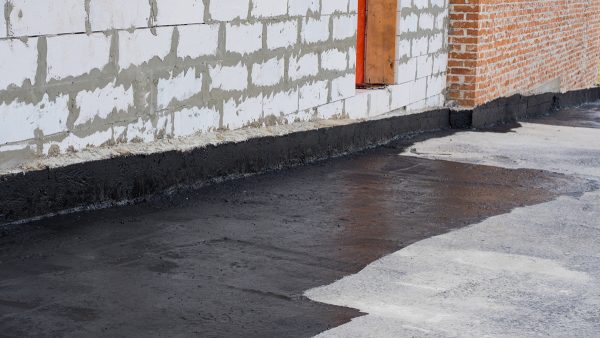How long does waterproofing last?

Waterproofing is a vital part of protecting any structure, whether it’s a multi-tier parking garage or a new shopping center. Some waterproofing techniques last longer than others, so it’s important to select the right fit for your building. Let’s explore how long waterproofing lasts in various applications.
Interior waterproofing vs. exterior waterproofing
Before we discuss how long waterproofing lasts, it’s important to note the difference between interior waterproofing and exterior waterproofing. Both applications involve a sealant of some sort that’s designed to keep water from reaching the inside of the building. However, the way that sealant is applied and the amount of wear it faces varies by location.
Interior waterproofing tends to last longer than exterior waterproofing because it is not exposed to as many elements. Exterior waterproofing is preventative though. Interior waterproofing is reactive. Many commercial buildings use a combination of interior and exterior waterproofing for maximum protection.
How long does exterior waterproofing last?
Exterior waterproofing applications have an average lifespan of 10 years. Having a sufficient drainage system around the building could increase that timeframe. This reduces the groundwater surrounding the foundation, which cuts back on wear and tear.
How long does interior waterproofing last?
Interior waterproofing could last 20 years or longer, depending on application. Interior waterproofing is easier to service than exterior waterproofing, so repeat applications are less problematic. Nevertheless, interior waterproofing addresses water that has already entered the building’s foundation. Exterior waterproofing blocks it from penetrating in the first place.
Above-grade waterproofing vs. below-grade waterproofing
Yet another factor that determines the longevity of waterproofing is if the application occurs above-grade or below-grade. Below-grade applications are most common because they address water around the building’s foundation. Above-grade waterproofing is still beneficial, though, because it shields the parts of the building that sit above the ground.
Above-grade applications are exposed to UV rays, heavy precipitation, and other elements that wear on them quickly. Thus they may require additional applications sooner than below-grade waterproofing. JK Industries can help you find the perfect waterproofing plan for your budget and building needs.
